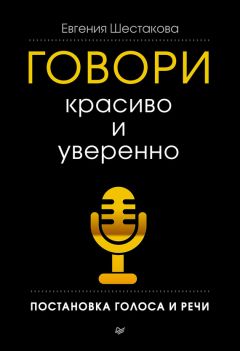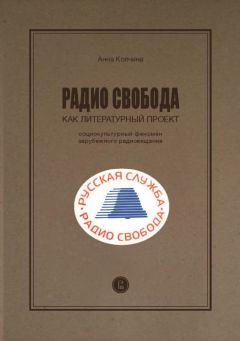Фрэнсис Фитцджеральд - Английский язык с Ф. Скоттом Фитцджеральдом. Алмаз величиной в отель «Риц» / Francis Scott Fitzgerald. The Diamond As Big As The Ritz
As August drew to a close John began to regret (по мере того как август близился к концу, Джон начал горевать: «сожалеть, испытывать сожаление») that he must soon go back to school (что скоро он должен возвращаться в школу). He and Kismine had decided to elope the following June (они с Кисмин решили сбежать в июне следующего года: «в следующем июне»; to elope — сбежать /особенно с возлюбленным, чтобы тайком пожениться/).
location [lqV'keISqn], asylum [q'saIlqm], elope [I'lqVp]
But they had, at least, solved the problem of what was to be done with them — they all went mad early one morning after spending the night in a single room trying to agree upon the location of a fountain, and were now confined comfortably in an insane asylum at Westport, Connecticut.
"But," inquired John curiously, "who did plan all your wonderful reception rooms and halls, and approaches and bathrooms —?"
"Well," answered Percy, "I blush to tell you, but it was a moving-picture fella. He was the only man we found who was used to playing with an unlimited amount of money, though he did tuck his napkin in his collar and couldn't read or write."
As August drew to a close John began to regret that he must soon go back to school. He and Kismine had decided to elope the following June.
"It would be nicer to be married here," Kismine confessed (было бы приятнее пожениться здесь, — призналась Кисмин), "but of course I could never get father's permission to marry you at all (но я, конечно, никогда не смогла бы получить от отца разрешение выйти за тебя вообще). Next to that I'd rather elope (к тому же я /даже/ хочу: «предпочитаю» выйти замуж тайно). It's terrible for wealthy people to be married in America at present (для богатых людей сейчас /просто/ ужасно вступать в брак в Америке; present — настоящее; настоящее время) — they always have to send out bulletins to the press (им всегда приходиться посылать = давать объявления в прессу/газеты; bulletin — бюллетень, краткое официальное сообщение; информационное сообщение) saying that they're going to be married in remnants (в которых сказано, что они будут бракосочетаться в старинном уборе; remnant — остаток; остатки), when what they mean is just a peck of old second-hand pearls (в то время как то, что они имеют в виду /при этом/ — это всего лишь куча подержанных старых жемчугов; peck — пек /мера сыпучих тел, в США равен 7,7 литрам/; куча, масса) and some used lace worn once by the Empress Eugenie (и какие-нибудь поношенные: «использовавшиеся/подержанные» кружева, которые однажды надевала императрица Евгения; to wear — носить /одежду/)."
"I know," agreed John fervently (с жаром согласился Джон). "When I was visiting the Schnlitzer-Murphys (когда я гостил у Шнлицер-Мэрфи), the eldest daughter, Gwendolyn, married a man (/их/ старшая дочь Гвендолин выходила замуж за человека) whose father owns half of West Virginia (отец которого владеет половиной Западной Виргинии). She wrote home (она написала домой; to write) saying what a tough struggle she was carrying on on his salary as a bank clerk (рассказав, как туго ей приходится: «какую жестокую борьбу она ведет» при его зарплате банковского клерка: to carry on — продолжать; вести /дело, борьбу/) — and then she ended up by saying that 'Thank God, I have four good maids anyhow, and that helps a little.' (а закончила словами: "слава Богу, у меня хоть есть четыре хорошие горничные, это немного помогает = облегчает мне жизнь"; to end up by… — заканчивать; завершать чем-л.)"
bulletin ['bVlItIn], whose [hHz], wrote [rqVt]
"It would be nicer to be married here," Kismine confessed, "but of course I could never get father's permission to marry you at all. Next to that I'd rather elope. It's terrible for wealthy people to be married in America at present — they always have to send out bulletins to the press saying that they're going to be married in remnants, when what they mean is just a peck of old second-hand pearls and some used lace worn once by the Empress Eugenie."
"I know," agreed John fervently. "When I was visiting the Schnlitzer-Murphys, the eldest daughter, Gwendolyn, married a man whose father owns half of West Virginia. She wrote home saying what a tough struggle she was carrying on on his salary as a bank clerk — and then she ended up by saying that 'Thank God, I have four good maids anyhow, and that helps a little.' "
"It's absurd," commented Kismine (это нелепо! — заметила Кисмин). "Think of the millions and millions of people in the world, laborers and all (подумай о миллионах и миллионах людей в мире, рабочих и вообще), who get along with only two maids (которые обходятся всего двумя горничными)."
One afternoon late in August a chance remark of Kismine's changed the face of the entire situation (как-то после полудня в конце августа одна случайная фраза Кисмин изменила лицо = облик всей ситуации), and threw John into a state of terror (и повергла Джона в ужас: «состояние ужаса»; to throw — бросать).
They were in their favourite grove (в своей любимой роще), and between kisses John was indulging in some romantic forebodings (и между поцелуями Джон предавался романтическим предчувствиям/пророчествам; romantic — романтичный; романтический; воображаемый, вымышленный, придуманный; foreboding — плохое предсказание, пророчество; предчувствие /дурного/) which he fancied added poignancy to their relations (которые, /как/ он воображал/считал, придавали остроты/пикантности их отношениям).
"Sometimes I think we'll never marry," he said sadly (иногда мне кажется, что мы никогда не поженимся, — сказал он грустно). "You're too wealthy, too magnificent (ты слишком богата, слишком недоступна; magnificent — великолепный, величественный; возвышенный, высокий). No one as rich as you are can be like other girls (ты настолько богата, что не можешь не быть особенной: «ни одна /девушка/, настолько богатая, как ты, не может быть похожа на других девушек»). I should marry the daughter of some well-to-do wholesale hardware man from Omaha or Sioux City (мне следовало бы жениться на дочери какого-нибудь зажиточного оптового торговца скобяными товарами из Омахи или Су-Сити; hardware — металлические изделия /инструменты, детали и т. п./; скобяные товары), and be content with her half-million (и быть довольным = удовлетвориться ее полумиллионом)."
foreboding [fL'bqVdIN], fancied [fxnsId], content /как прил. и сущ./ ['kOntent]
"It's absurd," commented Kismine. "Think of the millions and millions of people in the world, laborers and all, who get along with only two maids."
One afternoon late in August a chance remark of Kismine's changed the face of the entire situation, and threw John into a state of terror.
They were in their favourite grove, and between kisses John was indulging in some romantic forebodings which he fancied added poignancy to their relations.
"Sometimes I think we'll never marry," he said sadly. "You're too wealthy, too magnificent. No one as rich as you are can be like other girls. I should marry the daughter of some well-to-do wholesale hardware man from Omaha or Sioux City, and be content with her half-million."
"I knew the daughter of a wholesale hardware man once," remarked Kismine (я знала дочь одного оптового торговца скобяными товарами, — сказала Кисмин). "I don't think you'd have been contented with her (не думаю, чтобы она тебе понравилась; contented — удовлетворенный; довольный). She was a friend of my sister's (она была подругой моей сестры). She visited here (гостила здесь)."
"Oh, then you've had other guests?" exclaimed John in surprise (так у вас бывали /и/ другие гости? — с удивлением воскликнул Джон).
Kismine seemed to regret her words (казалось, пожалела о своих словах).
"Oh, yes," she said hurriedly (торопливо), "we've had a few (несколько)."
"But aren't you — wasn't your father afraid they'd talk outside (но /разве/ вы… ваш отец не боялся, что они могут проболтаться; outside — снаружи; во внешнем мире)?"
"Oh, to some extent, to some extent (в какой-то степени)," she answered. "Let's talk about something pleasanter (давай поговорим о чем-нибудь более приятном)."
But John's curiosity was aroused (но в Джоне проснулось любопытство; to arouse — будить, пробуждать).
"Something pleasanter!" he demanded (настойчиво спросил он). "What's unpleasant about that (/а/ что неприятного в этом)? Weren't they nice girls (они были невоспитанными: «они не были хорошими/воспитанными девушками»)?"
wholesale ['hqVlseIl], contented [kqn'tentId], hurriedly ['hArIdlI]
"I knew the daughter of a wholesale hardware man once," remarked Kismine. "I don't think you'd have been contented with her. She was a friend of my sister's. She visited here."
"Oh, then you've had other guests?" exclaimed John in surprise.
Kismine seemed to regret her words.
"Oh, yes," she said hurriedly, "we've had a few."
"But aren't you — wasn't your father afraid they'd talk outside?"
"Oh, to some extent, to some extent," she answered. "Let's talk about something pleasanter."
But John's curiosity was aroused.
"Something pleasanter!" he demanded. "What's unpleasant about that? Weren't they nice girls?"
To his great surprise Kismine began to weep (к его огромному удивлению, Кисмин зарыдала).
"Yes — th — that's the — the whole t-trouble (нет, в том-то и д-дело; yes в ответах на вопросы с отрицанием соответствует русскому "нет"; trouble — беспокойство; неприятность). I grew qu-quite attached to some of them (я так привязы-ы-ывалась к не-некоторым из них; to grow — расти; делаться, становиться; attached — прикрепленный; привязанный; преданный кому-л.). So did Jasmine, but she kept inv-viting them anyway (и Жасмин тоже, но она все равно продолжала их приглаша-а-ать). I couldn't understand it (я /никак/ не могла этого понять)."
A dark suspicion was born in John's heart (темное = страшное подозрение зародилось в сердце = в душе у Джона).
"Do you mean that they told, and your father had them — removed (ты имеешь в виду, что они проговорились и твой отец их… убрал)?"
"Worse than that," she muttered brokenly (хуже чем так, — судорожно пролепетала она; brokenly — толчками, рывками, судорожно) "Father took no chances (отец не рисковал) — and Jasmine kept writing them to come (а Жасмин продолжала им писать, чтобы они приезжали), and they had such a good time (и они так хорошо проводили время)!"
She was overcome by a paroxysm of grief (она была вне себя от горя: «она была охвачена приступом/припадком скорби»).
Stunned with the horror of this revelation (потрясенный этим ужасным признанием: «ужасом этого открытия/откровения»), John sat there open-mouthed (сидел, разинув рот), feeling the nerves of his body twitter like so many sparrows perched upon his spinal column (чувствуя, что все нервы его тела трепещут, как будто множество воробьев уселись на его позвоночник; игра слов: to twitter — чирикать, щебетать; дрожать, трястись /от нервного возбуждения и т. п./).
trouble ['trAbl], suspicion [sq'spISqn], column ['kOlqm]
To his great surprise Kismine began to weep.
"Yes — th — that's the — the whole t-trouble. I grew qu-quite attached to some of them. So did Jasmine, but she kept inv-viting them anyway. I couldn't understand it."



